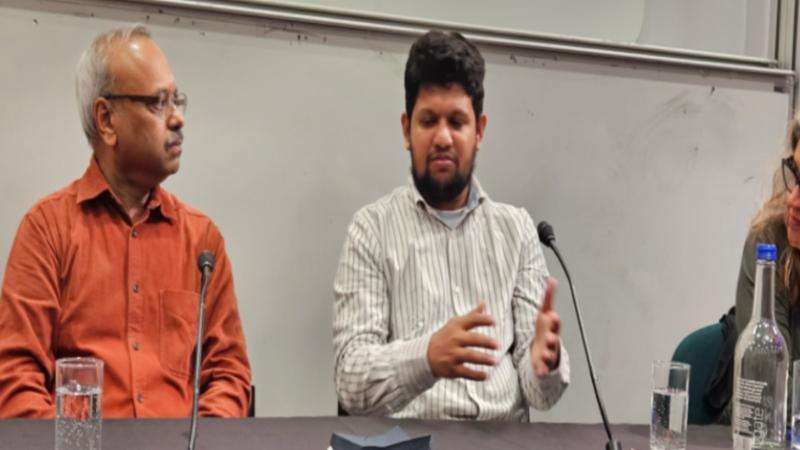In a move that could reshape South Asian geopolitics, Pakistan is actively seeking to mend its long-strained relationship with Bangladesh, a development that has captured the attention of a watchful India.
Decades after a brutal independence war that saw Pakistani forces accused of widespread atrocities against Bengalis, Islamabad is making its most significant diplomatic outreach in years. This week, Dhaka is hosting Pakistan's foreign minister and trade envoy, a visit that veteran Bangladeshi freedom fighters like Syed Abu Naser Bukhtear Ahmed view with cautious pragmatism. For Ahmed, the scars of the 1971 war, which killed hundreds of thousands of people, remain. "I would have loved to see the responsible people tried," he said, noting the loss of six friends. He added that he doesn't oppose normalizing relations with those not directly involved in the violence.
For years, relations between the two Muslim-majority nations were largely limited to cultural ties, with Bangladesh leaning heavily on its close ally, India. However, a mass uprising in Dhaka last year that led to the ouster of the India-aligned government of Sheikh Hasina has opened a new window for dialogue with Pakistan.
Analysts believe this growing rapprochement is a direct result of the strained ties between Dhaka and New Delhi. "Bangladesh had been one of India's closest partners in its neighbourhood, and now it is flirting with India's chief adversary," said Michael Kugelman, a US-based analyst. Another expert, Azeem Khalid, described the situation as "the emergence of a new strategic equation—one that reduces Indian influence and instead strengthens a cooperative axis between Pakistan and Bangladesh."
This new dynamic creates potential problems for India and Bangladesh. For India, the fear is a revival of anti-India elements and militant networks, as well as a challenge to its maritime dominance in the Bay of Bengal. From a security perspective, increased cooperation between Islamabad and Dhaka could weaken counter-terrorism coordination and lead to an increase in illegal migration. The shifting alliances could also compel India to reassess its "neighborhood-first" policy and seek to strengthen ties with other regional players.
For Bangladesh, while the warming ties offer new trade and strategic opportunities, they could also pose risks to its relationships with its other neighbors, particularly India and Myanmar. The country is already grappling with the ongoing Rohingya crisis, which has created tensions with both its neighbors. The latest situation with the Rohingya crisis remains dire. More than 1.1 million Rohingya, a stateless minority group, are living in overcrowded refugee camps in Bangladesh, primarily in Cox's Bazar. Most of them fled a brutal military crackdown in Myanmar in 2017. The conditions in the camps are dire, with refugees facing limited access to clean water, healthcare, and education. Despite calls for repatriation, the situation in Myanmar remains too volatile for a safe return.
Looking ahead, the next steps for the Rohingya crisis are uncertain. Repatriation efforts have stalled due to ongoing conflict and instability in Myanmar. There is a concern that without a political solution, more Rohingya could flee to Bangladesh, further straining resources. The international community, including the UN, has made appeals for aid, but funding is a constant challenge. For Bangladesh, the long-term solution lies in a stable Myanmar that can guarantee the safety and rights of the Rohingya people, but that seems a distant prospect.
The future of the nascent Pakistan-Bangladesh ties is also uncertain. With elections in Bangladesh in February, the new government could choose to realign with India, making the recent surge in ties with Pakistan a casualty. However, for now, the diplomatic dance between Dhaka and Islamabad is a clear sign that the regional order in South Asia is in flux.


_3.jpg)
_2.jpg)



_2.jpg)
.svg)



